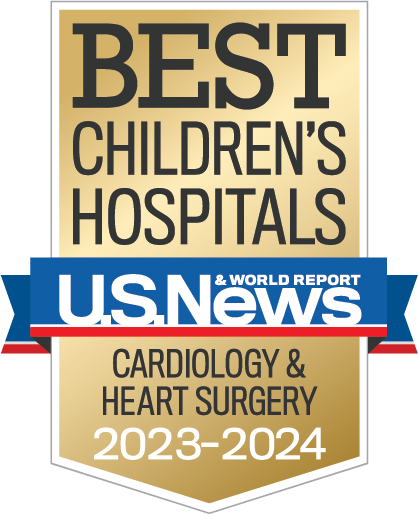The Coronary Artery Program at the Benderson Family Heart Center at Boston Children’s Hospital treats children who have abnormalities or malformations of one or more coronary arteries. We refer to them as coronary anomalies.
Why choose the Coronary Artery Program at Boston Children’s?
Our program brings together experts from the Heart Center to collectively draw on their expertise and knowledge so that we can best diagnose and treat coronary anomalies. Coronary anomalies appear to be infrequent, and they are not always the same. They may not be diagnosed until late adolescence or adulthood because of a lack of symptoms, or the symptoms aren’t always attributed to a coronary anomaly.
That’s why Boston Children’s formed the Coronary Artery Program: to establish a systematic approach to detect the many variations and patterns of coronary anomalies, and to determine the best way to treat each patient’s condition. The program is comprised of experts from several specialty areas at the Heart Center, including Cardiology, Non-Invasive Cardiac Imaging, Cardiac Catheterization, Adult Congenital Heart, Cardiac Anesthesia, and Cardiac Surgery.

As a team, we’re building on each patient case, gathering experience to more quickly and accurately detect and treat coronary anomalies.
How has the program’s approach improved the care of children with coronary anomalies?
Since the program’s inception in 2017, our clinicians have made great strides in understanding the many differences among coronary abnormalities. Children can be born with a coronary anomaly, or acquire it through treatment for other congenital heart defects and diseases. Conditions such as Kawasaki disease can also affect a child’s coronary arteries. By having a dedicated focus on coronaries, your child will benefit from our team’s experience and resources as we collectively compare cases and use those findings to shape your child’s individualized treatment plan.
We have recognized that coronary artery problems are probably more common than what medical experts once believed. By increasing awareness of coronary anomalies, our clinicians are more apt to recognize and offer surgery to treat them. We consider a number of surgical options to treat coronary anomalies, which are individualized for each patient, and we have a formal post-operative care plan. In addition, we recommend a follow-up protocol for patients after they are discharged. We want to ensure they have the most optimal outcome, both immediately after surgery and in the long term.
Innovating the future of coronary artery treatment and care
By pulling together experts across the many disciplines of the Cardiac Surgery and Cardiology departments, the Coronary Artery Program benefits from their innovative research — work that is uncovering why coronary abnormalities happen and how they can be corrected. For instance, one study is using computer modeling to review the changes in coronary blood flow that may lead to sudden death. We’re also participating in a multi-center study that looks at the anxiety a coronary anomaly diagnosis causes families. Another study aims to understand pathologic changes associated with the anomalous aortic origin of a coronary artery (AAOCA). Yet another study, also for AAOCA, is comparing the findings of imaging with our own observations in surgery.
Helping families understand coronary artery treatment
An advantage of having experts from many cardiac disciplines on one team is that someone is always available to talk to your family about the specifics of treatment. We understand that having a coronary anomaly can be very stressful for patients and their families. Our team members will review every detail of treatment so that your family can make the most informed decisions about surgery and aftercare.
Our team works together to help you and your family understand coronary anomalies and how we intend to get you or your child on a path to recovery.
Cases Presented at Coronary Artery Case Conference
Our coronary artery program has grown since it started in 2017; only four years later, we had 100 cases to look back on at our bimonthly clinical case conference.
Surgery for Anomalous Aortic Origin of Coronary Artery
We have had increasing referrals for AAOCA; we now perform about 12 operations a year.

